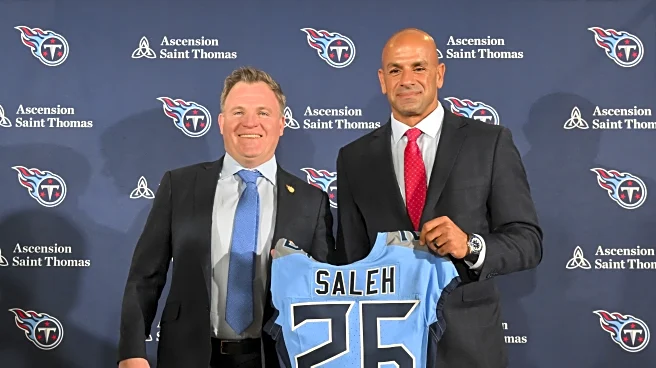What's Happening?
The Federal Communications Commission (FCC), under a Republican majority, has proposed changes to the rules governing how internet service providers (ISPs) disclose fees to consumers. This proposal, known
as a 'Notice of Proposed Rulemaking,' suggests that ISPs would no longer be required to read broadband labels over the phone or provide a complete breakdown of fees in customer account portals. These labels, introduced in April 2024, were designed to offer transparency by detailing the actual costs of internet plans, including hidden fees. The FCC's proposal has sparked concern among consumer advocates who argue that it could lead to reduced transparency for consumers. The proposal will undergo a 30-day public comment period, followed by a 30-day reply period, before a final vote is expected by the end of the year.
Why It's Important?
The proposed changes by the FCC could significantly impact consumer rights and transparency in the telecommunications industry. Broadband labels have been praised for helping consumers make informed decisions by clearly displaying the costs associated with internet plans. If the proposal is adopted, consumers may find it more challenging to understand the true cost of their internet services, potentially leading to unexpected charges. This move could benefit ISPs by reducing regulatory burdens, but it may also lead to increased scrutiny and criticism from consumer advocacy groups. The decision reflects broader debates about consumer protection and regulatory oversight in the telecommunications sector.
What's Next?
The FCC will collect public comments on the proposed rule changes over the next 30 days, followed by a 30-day period for replies to those comments. The final decision on whether to adopt the new rules is expected by the end of the year. Stakeholders, including consumer advocacy groups and ISPs, are likely to engage in lobbying efforts to influence the outcome. The proposal has already drawn criticism from Anna Gomez, the lone Democrat on the commission, who described it as anti-consumer. The outcome of this decision could set a precedent for future regulatory actions in the telecommunications industry.










